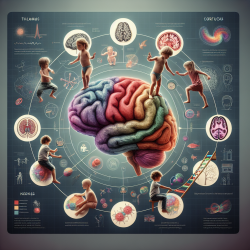As a speech-language pathologist, understanding the multifaceted benefits of physical activity can significantly enhance your practice, particularly when working with preschoolers. The recent study, "Physical activity intervention (Movi-Kids) on improving academic achievement and adiposity in preschoolers with or without attention deficit hyperactivity disorder: study protocol for a randomized controlled trial," provides compelling evidence on how structured physical activity can positively impact both academic achievement and health outcomes in young children.
The Movi-Kids study involved 21 schools in Spain and targeted children aged 4 to 7 years. The intervention consisted of three main components:
- Three weekly, hour-long sessions of recreational, non-competitive physical activity.
- Educational materials for parents and teachers to address sedentary lifestyle risks.
- Playground modifications to promote physical activity during breaks.
Primary outcomes measured included academic achievement and adiposity, while secondary outcomes encompassed ADHD risk, motor skills, health-related quality of life, and sleep quality. The study revealed several key findings:
- Increased physical activity was associated with improvements in academic achievement, including intelligence, cognition, memory, attention, and perception.
- Physical activity interventions were effective in reducing adiposity, as measured by body mass index, waist circumference, triceps skinfold thickness, and body fat percentage.
- Secondary benefits included enhanced motor skills, better health-related quality of life, and improved sleep quality.
For practitioners, these findings underscore the importance of integrating physical activity into early childhood education and therapy sessions. Here are some practical steps to implement these insights:
- Incorporate short, structured physical activities into your therapy sessions to boost engagement and cognitive function.
- Educate parents and teachers about the benefits of physical activity and provide them with resources to encourage active lifestyles at home and school.
- Advocate for school policies that support physical activity, such as playground modifications and after-school programs.
Encouraging further research in this area can also be beneficial. Understanding the long-term impacts of physical activity on academic and health outcomes will help refine and optimize interventions for children with or without ADHD.
To read the original research paper, please follow this link: Physical activity intervention (Movi-Kids) on improving academic achievement and adiposity in preschoolers with or without attention deficit hyperactivity disorder: study protocol for a randomized controlled trial.










